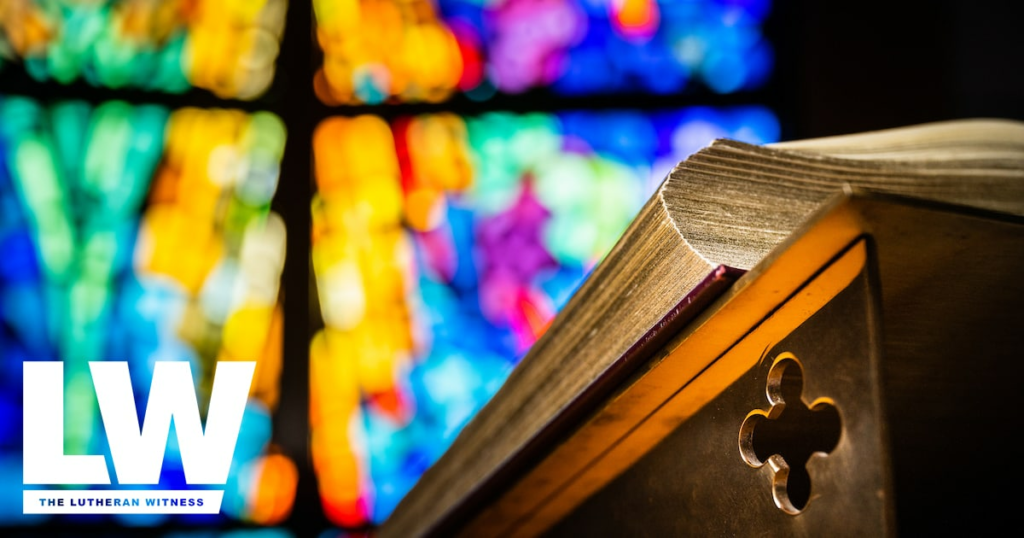Our government is a gift from God, who calls us to be good stewards of it.
by John W. Shimkus
Religion and politics are the two subjects that conventional wisdom says should never be brought up in polite conversation. If this really were true, I would be a very lonely man. That’s because I am a Christian in politics.
In my view, religion and politics should be discussed, acted upon, and be a part of our daily lives. And, these two subjects are not mutually exclusive. They complement each other.
Throughout the Bible, God confirms the role of government. For example:
- He used a foreign government–Egypt–to keep His promise alive through Joseph, who had become “governor of the land” (Gen. 42:6).
- He cites the citizen’s role to financially support government (Matt. 22:18–21).
- He commands us to pray for all those in authority (1 Tim. 2:1–3).
- He directs us to obey the rule of the government placed over us (Rom. 13:1–7).
Martin Luther confirms the important role of the state and honorable men serving therein. And he placed a great importance on educating the young for civil service. In the Large Catechism, under his explanation of the Fourth Commandment, Luther writes, “If we want qualified and capable men for both civil and spiritual leadership, we must spare no effort, time, and expense in teaching and educating our children to serve God and mankind.”
I was one of those young children. I attended Lutheran schools from kindergarten through eighth grade at Holy Cross in Collinsville, Ill., where today my two oldest sons are being schooled.
My late pastor, Rev. Gil Busarow, once wrote me a letter. He knew that I was trying to find my mission field. His response was short and sweet: “Blossom where you are!” And that is what I–and many of my colleagues in Washington–try to do.
The United States House of Representatives is like a large extended family, with the same difficulties and challenges that all large families face. We have had colleagues face illness, the death of a spouse or child, and long separations from family and friends. We also go through one of the most challenging experiences of all–competitive elections.
Through all of this, we are called to love one another. And in spite of media sensationalism to the contrary, we do love one another, and we pray for our colleagues regardless of their political ideology.
There are many opportunities for spiritual growth and fellowship in Washington, too. Friendships develop “across the aisle” of political differences. The majority of members are moral men and women committed to their families, faith, love of country, and ideology. As in any profession, bickering and sin do exist. But Godliness and high moral standards also thrive in the political arena and our government–though they seldom grab headlines.
The great British statesman Sir Edmund Burke said, “All that is necessary for the triumph of evil is that good men do nothing.”
Our founding fathers certainly supported this theory. William Penn said, “Though good laws do well, good men do better.” Noah Webster is quoted as saying, “When a citizen gives his [vote] to a man of known immorality, he abuses his trust and he sacrifices not only his own interest but that of his neighbor. He betrays the interest of his country.”
Ours is a stewardship government. God gave this government to us. We ought to view it as we view other gifts God has given us.
In the parable of the talents (Matt. 25:14–20), Christ shows us that we should be good stewards of what God has given us. Do we bury our heads in the sand and return no interest to God? Do we participate only minimally and only when convenient, saying, for example, “Since absentee voting is such a hassle, I think I’ll skip voting this time”? Are we actively involved in supporting this constitutional republic and, in so doing, promoting the blessings of liberty to our family, nation, and world?
Our gracious God, who has given us all good things, calls us to be good stewards. When it comes to the gift of government, we are good stewards by being informed and active participants in the election and governing process. We can pray, then, that through such involvement, we will rejoice as the righteous rule (Prov. 29:2).
The Hon. John M. Shimkus represents Illinois’ 19th Congressional District in the U.S. House of Representatives. He is a member of Holy Cross Lutheran Church, Collinsville, Ill. This story appeared originally in the July 2000 Lutheran Witness. LCMS congregations may reprint this article for parish use. All other rights reserved. Text copyright © 2000 by John M. Shimkus.





